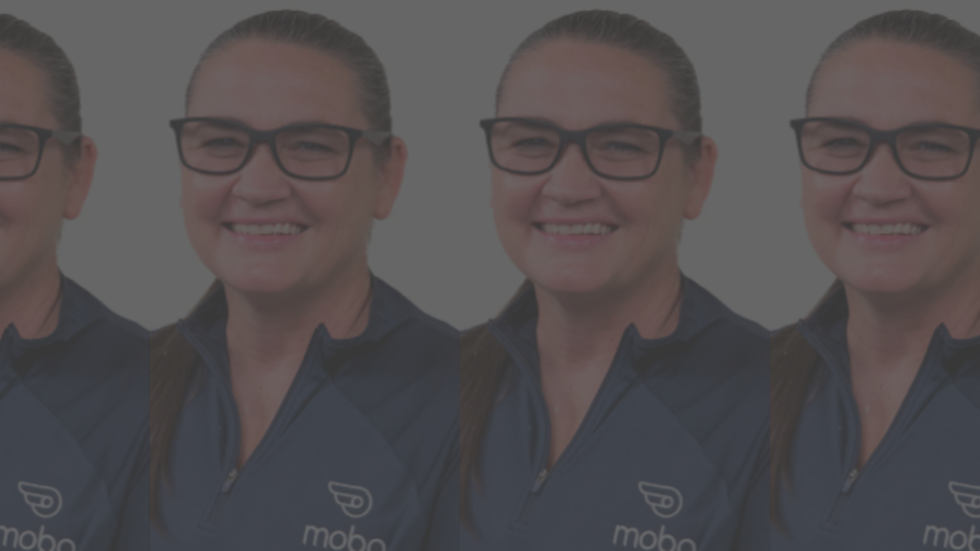
Raised in central Texas, Christie Powell grew up in a competitive, sports-dominated environment. Due to her athletic pursuits, she frequently faced injury, totaling 38 broken bones throughout her lifetime in addition to ten separate surgeries.
However, these repetitive injuries exposed her to the world of physical therapy, which ignited a newfound passion for a career related to sports medicine.
Powell’s Discovery Of Therapeutic Expertise
As an athlete, Powell played soccer and softball during her undergraduate years at the University of the Incarnate Word. She regularly found herself working alongside trainers, who aided her frequent injuries throughout her athletic seasons.
“I never played a season healthy, and so I was always with my athletic trainer,” Powell said. “But I thought he did a really poor job with me. And I thought — I would love to be in your position and really, actually help these athletes and motivate them and encourage them and be on their journey”
However, it wasn’t until Powell underwent her first knee surgery when she took interest in sports medicine and orthopedics, eventually changing her major from architecture to biology and chemistry on the pre-medical track.
“When I got inspired to go into medicine, it was more just me having that negative experience and really deciding I kind of wanted to do what that guy was doing … differently,” Powell added. “I wanted to help athletes like myself, and so that’s when it switched for me.”
After Powell’s surgery, she was informed by her trainers that she would need to receive physical therapy for her recovery. Once she became immersed in the world of rehabilitation, she realized that her passion was not medicine, but rather physical therapy.
“The first time I walked into a sports medicine PT clinic, I was like oh, my god — this is what I want to do,” Powell said.
Once graduating from college, Powell began her graduate program and graduated four years later, gaining a masters in Physical Therapy from Texas State University.
Establishing a Practice
Shortly after graduation, Powell received $1,000 from her parents to invest in her own physical therapy practice. During this time, she was also working as a soccer coach at Warriors Soccer Club and was in the middle of studying for her board exam.
She was inspired to name her future practice “Champion Performance,” after being encouraged by her classmates in college to name her practice with her initials, “CP.”
Even after first establishing her clinic, Powell continued to work as a soccer coach and was eventually given a generous donation by the father of one of the players she coached.
“He had an electrical closet, in his building where his office was, [and] he said, ‘If you fix it up a little bit, you could start your clinic inside this electrical closet,’” Powell added. “And that’s what I did. And so I put a curtain over the electrical panels, and a table, barely a table fit in there and a mirror on the wall.”
After 6 months, Powell’s business began to expand, and she quickly outgrew the original electrical closet. The same man who had originally helped start her clinic had the idea of starting his own soccer club, and he began to rent a collection of offices. He then offered her one of the offices as a new space for her practice.
Additionally, Powell obtained her Ph.D. from the University of Texas at Austin in Rehabilitation and Movement Science. She also authored multiple publications showcasing her expertise. This included a Special Topics chapter titled “Functional Measures for Lower Extremity Injuries: A Guide to a Safe Return to Sport” in the Handbook of Orthopaedic Rehabilitation: 3rd edition published by local orthopedic surgeon Dr. Brent Brotzman in the Journal of Sports Rehabilitation.
Foraging A New Path for Physical Therapy
Though her practice changed location multiple times, Powell’s vision for her practice remained consistent: she always hoped to create a facility for the everyday athlete, where they can be treated alongside professionals that could engage with them in their sport.
Treatments at Powell’s clinic involved physical movements, including kicking a soccer ball, striking a volleyball, or jumping with a ladder in addition to deep-tissue massages and biomechanics. These methods further integrated their sport into a mode of treatment that was originally deemed as stale and medical.
“I want to wear sporty gear so that I can be involved in the actual process of rehab, and I want late hours, so people can actually come after work and kids can come after school,” Powell added. “So I kind of just bucked the system. I just didn’t like how it was run, traditionally. And I thought — you know what, I’m gonna break all the rules, and I broke all the rules.”
Over the years, Powell’s facility continued to grow, supporting a variety of patients, ranging from Division I athletes to the elderly. She had never invested in marketing, relying almost entirely on word of the mouth and positive experiences of her previous clients.
As Powell ran her practice, her passion for physical therapy grew as she saw its importance to all groups of people, including professional athletes and elementary school children, and the tangible impact she could have on others.
Injury, Powell noted, is a part of human nature.
“[As a physical therapist], you learn medicine, from the medical side, you learn strength and conditioning and exercise on the exercise side, and then anatomy and physiology,” Powell said. “And you blend those three concepts together. We are the perfect people to be on that journey with people.”
Champion Performance is filled with patients of all ages and backgrounds in a capacity that features treadmills, ellipticals, ladders, and a small-sized astroturf field. Patients can receive transformational treatment and celebrate their progress with a ping-pong match with staff members, many of whom are former college and high school athletes.
In addition to running her clinic, Powell teaches both undergraduate and graduate students as an adjunct professor at the University of Texas at Austin and Texas State University, her two alma maters.
Though Powell noted that she faced a number of difficulties starting and maintaining her clinic, it is an experience she wouldn’t trade for the world.
“I love the people aspect,” Powell said. “I love being a mentor and a manager. I love being somebody people really consider a good boss.”



